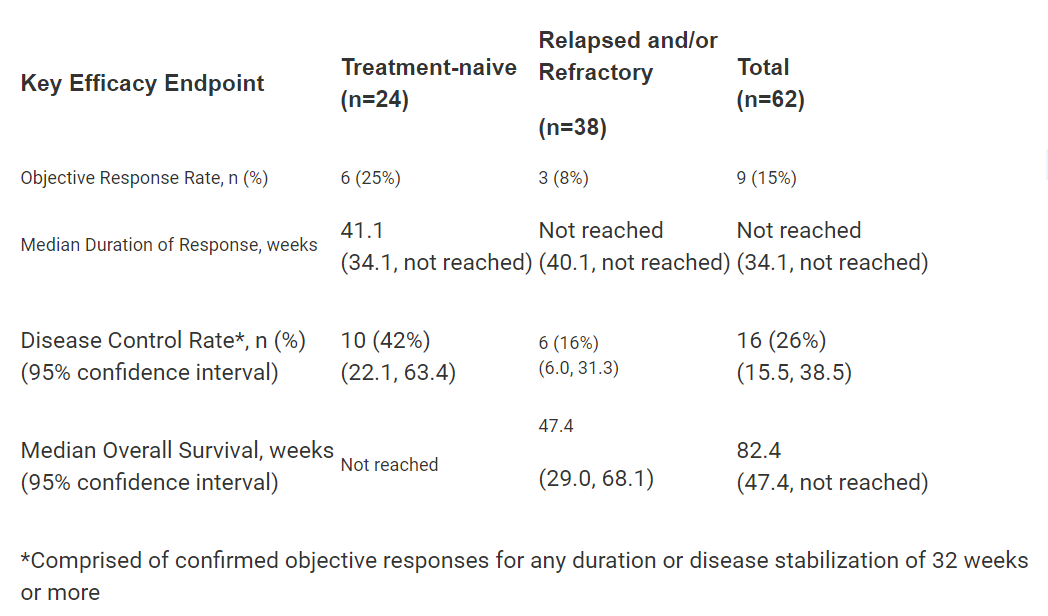
超过90%的上皮样肉瘤中表现为INI1蛋白表达缺失。INI1(又称hSNF5)是进化保守的“染色质重构复合物”SWI/SNF家族中的一员。这种复合物在抑癌基因的激活方面具有重要作用。INI1的突变和缺失可导致异常的组蛋白甲基化,诱发细胞的恶性转化,并且细胞的增殖会依赖于EZH2的活性。
作为组蛋白甲基转移酶,突变或过表达的EZH1/2,会抑制抑癌基因的转录活性。通过抑制EZH2,tazemetostat能够抑制组蛋白H3赖氨酸27(H3K27)的甲基化,恢复抑癌基因的表达。
Tazemetostat的新药申请是基于它在一项2期临床试验中的表现。在这项试验中,24名初治和38名复发/难治性上皮样肉瘤患者接受了tazemetostat的治疗。试验结果表明,截至2018年9月,tazemetosta的客观缓解率为15%,疾病控制率达到26%,中位总生存期尚未达到。

参考资料:
[1] Epizyme Announces FDA Advisory Committee Votes Unanimously in Favor of Tazemetostat for the Treatment of Patients with Epithelioid Sarcoma. Retrieved December 18, 2019, from https://www.businesswire.com/news/home/20191218005679/en
[2] A Phase 2, Multicenter Study of the EZH2 Inhibitor Tazemetostat in Adults (Epithelioid Sarcoma Cohort) (NCT02601950). Retrieved December 18, 2019, from http://www.epizyme.com/wp-content/uploads/2018/10/ESMO18-Cohort-5-poster_Final.pdf

